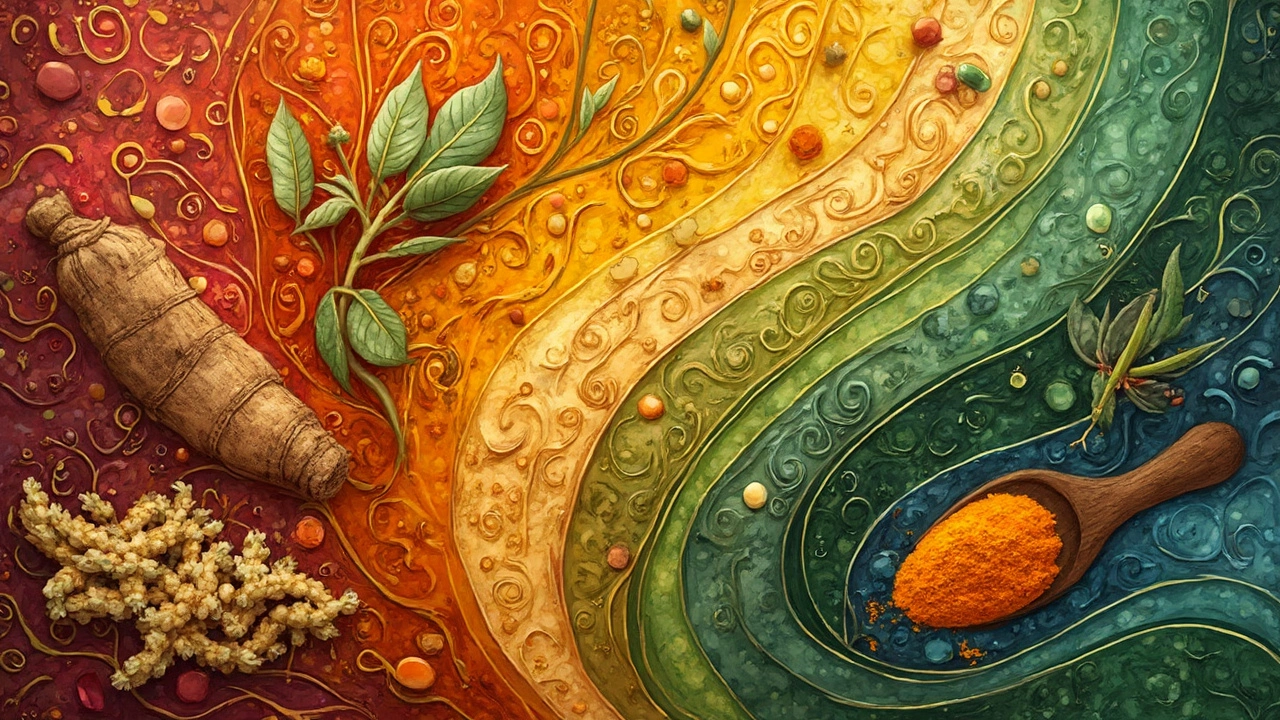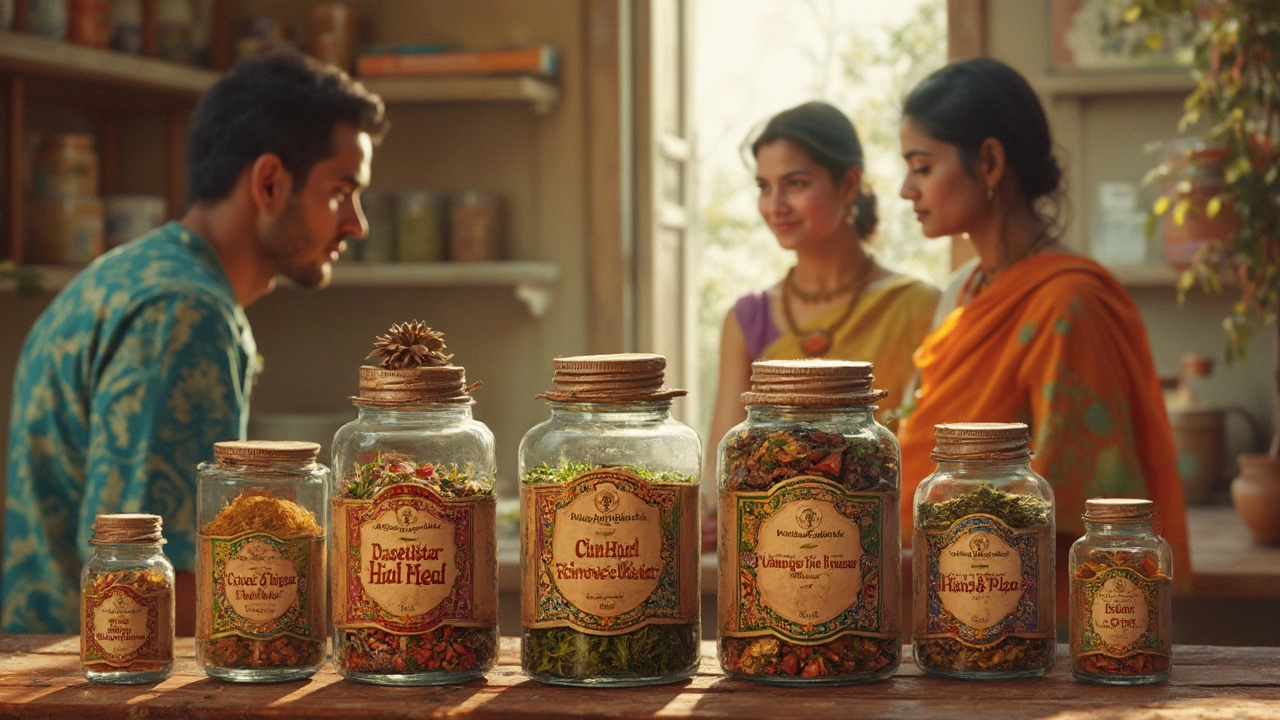Ever wondered if gulping down those herbal pills is really a good idea? Herbal supplements are all the rage today, and people swear by their supposed natural benefits. They promise everything from boosting your energy to making your skin glow, but are they really as harmless as they seem?
The truth is, herbal supplements are basically made from plants or their parts, like seeds, berries, roots, leaves, or flowers. These are often marketed as natural alternatives to conventional medicine. But just because they’re natural doesn’t mean they’re free from risks. They can have side effects, and if you’re not careful, they might even mess with other meds you’re taking.
- Understanding Herbal Supplements
- Benefits of Herbal Supplements
- Risks and Interactions
- Tips for Safe Use
Understanding Herbal Supplements
So, what exactly are herbal supplements anyway? They're products made from plants that folks often use to try and stay healthy or treat certain conditions. These can come in different forms like pills, capsules, teas, extracts, or powders. Each one claims to have some ingredient intended to do good things for your body.
You might find everyone talking about popular herbal supplements like turmeric, echinacea, or ginseng. Others might include garlic, ginger, or even green tea extracts. These ingredients are believed to offer benefits like reducing inflammation or preventing colds. However, saying they’re effective and safe is more complicated than slapping a 'natural' label on them.
A critical thing to understand is that, unlike regular medications, herbal supplements don’t always get the same strict scrutiny by health authorities. The Food and Drug Administration (FDA) in the U.S., for instance, doesn’t test these products the way they do prescription drugs. This means you’re often relying on manufacturers to be transparent.
When you walk down the aisles stacking these products, it's easy to assume all natural remedies are safe. But remember, just because something's labeled 'herbal' doesn't mean it won't impact you negatively, especially when mixed with other meds or if you're facing health conditions like pregnancy or allergies.
In places like India where Ayurveda is a big deal, herbal supplements have a historical significance. Yet, knowing your stuff, like checking if reputable sources back the claims, can make all the difference. Smart tip? Research brands that provide clear info about their product's sourcing and testing methods.
Here’s an example of some common herbal supplements and their uses:
| Supplement | Common Use |
|---|---|
| Turmeric | Anti-inflammatory |
| Echinacea | Boosting the immune system |
| Ginseng | Improving energy and focus |
Bottom line? Getting clued up about herbal supplements can help you decide what might actually work and what could be just another fad. It’s about picking the right info, not just the product.
Benefits of Herbal Supplements
You’ve probably heard your friend rave about some herbal supplements and how they changed her life. So, what’s the big deal with these natural goodies? Well, they’ve been around for ages, tapped into by different cultures for their healing properties. Let’s unpack why people are so sold on them.
First up, these supplements are sought after for their potential to ease common ailments. Ever tried ginger tea for a tummy ache? That’s herbal magic at work. Many claim herbs like ginseng can boost energy and improve focus. Got a cold? Echinacea teas and tablets might help shorten its duration.
Some folks turn to herbal supplements to support mental health. St. John’s Wort, for instance, is linked to easing mild depression. But hey, it's not a magic cure-all. If you're feeling blue, make sure to chat with someone qualified, okay?
Now, if you’re dealing with sleep issues, there are herbs like valerian root known to help you catch some z's without making you groggy the next day. Natural options can be super appealing if you want to skip prescription options.
And guess what? They're often packed with antioxidants. Green tea extract is a popular one, known for its potential to fight off those pesky free radicals. Think of antioxidants as little warriors that protect your cells from damage.
- Natural image: The word 'natural' gives these supplements a kind of spotless image that appeals to people wanting to avoid synthetics.
- Possible fewer side effects: While not always the case, some folks experience fewer side effects compared to standard medications.
- Easy over-the-counter availability: Most herbal supplements can be found at your local pharmacy or supermarket.
Before jumping on the herb bandwagon, keep in mind that while some benefits are backed by research, others are based more on tradition than evidence. Always be sure to do your homework and maybe have a chat with your healthcare provider before diving in!

Risks and Interactions
Herbal supplements might look appealing because they're marketed as natural remedies, but remember, natural doesn't always mean safe. These plant-based helpers can interact with other drugs or even affect medical conditions, sometimes causing more harm than good.
One big risk with herbal supplements is their potential to interact with prescription drugs. For instance, St. John’s Wort is a popular herbal remedy for mood swings, but it can seriously reduce the effectiveness of other medications like birth control pills or antidepressants. That’s not something you want a surprise from!
And it’s not just drug interactions you've got to watch out for. Some herbal supplements can cause allergic reactions, especially if you already have sensitivities to certain plants or pollens. If you’re prone to allergies, double-check what’s in those capsules.
Another concern is the lack of regulation in the herbal supplement industry. Unlike prescription drugs, these supplements don’t need rigorous testing before they hit the shelves. What’s on the label might not match what’s in the bottle, both in terms of quantity and quality of the ingredients.
| Supplement | Possible Interaction |
|---|---|
| Garlic | Can thin blood and increase bleeding when taken with anticoagulants |
| Ginkgo Biloba | May intensify effects of blood thinners |
| Echinacea | Could interfere with immunosuppressants |
To stay safe, it’s crucial to talk with your healthcare provider before starting any new herbal supplements. They can help you navigate these interactions and figure out what's safe based on your personal health conditions and any other meds you’re taking.
In a world where herbal supplements promise easy health benefits, it’s all about being informed and cautious. Doing your homework can help you avoid unexpected side effects and keep your well-being on track.
Tips for Safe Use
Taking herbal supplements can be tricky, especially with the vast array of choices out there. But don’t worry, a few simple tips can help you stay on track with these natural remedies without running into trouble.
First off, always research what you’re about to put into your body. Quick searches online for credible sources can give you a much-needed heads-up on what to expect. And hey, don't forget to check the label! Ensure it lists all ingredients and recommended dosages. If it looks like they’re hiding something, maybe give it a pass.
Next, speak to your doctor or healthcare provider, especially if you're on other medications. Certain herbal supplements can interact with drugs or even affect your health conditions directly. It's always better to be safe than sorry.
Are you getting your supplements from a trusted source? Buying from reputable brands or retailers can make a huge difference. They’re more likely to ensure what's inside matches what's on the label. Look for third-party testing or approvals from authorities like the Food Safety and Standards Authority of India (FSSAI) if available.
- Start small. If you’re trying something new, start with the smallest recommended dose to see how your body reacts.
- Avoid mixing multiple supplements together unless you’re really sure there are no adverse effects.
- Keep track of any changes in how you feel. Any strange reactions should be a signal to stop and talk to a healthcare professional.
Remember, natural remedies still have their place in health, but they aren’t a magic bullet. They’re more like a helping hand alongside a healthy lifestyle. With a little caution and education, you can enjoy the benefits without the downsides.









